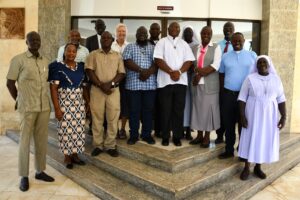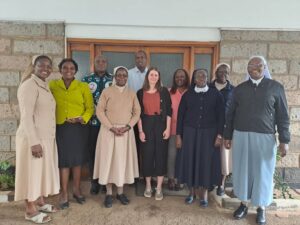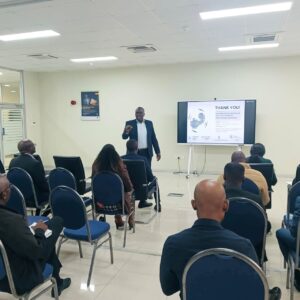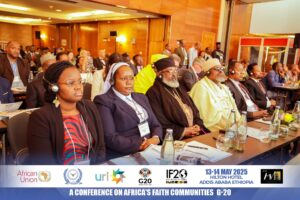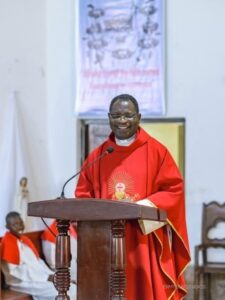KENYA: CAFOD Partners in East Africa Acknowledges the Impact of Collaboration
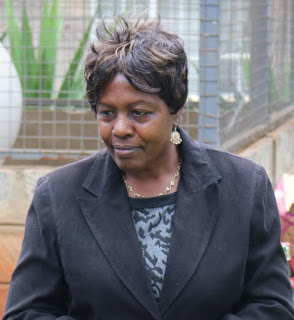
Ms. Catherine Ogolla, CAFOD Country Representative for Kenya and Uganda
Catholic Agency for Overseas Development (CAFOD) is known for supporting Bishops conferences and individual Dioceses in developing countries. In Kenya and Uganda, CAFOD has journeyed with a number of dioceses for a period spanning to nearly 30 years.
According to CAFOD Country Representative for Kenya and Uganda, Ms. Catherine Ogolla, the agency which is the development arm of the Bishops’ Conference of England and Wales cherishes long term relationships.
“In Kenya we have journeyed with Marsabit and Kitui Dioceses for 30 years; Isiolo for close to 20 years, while in Maralal Diocese, we started journeying with them from the time the Diocese was created,” Catherine explained.
CAFOD’s Work in Uganda
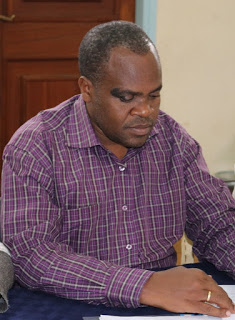
Secretary of Justice and Peace at Uganda
Episcopal Conference
In Uganda the agency currently works with four partners namely the Caritas Department of Archdiocese of Gulu, Caritas Department of Moroto Diocese, Caritas Department of Kotido Diocese and the National Department of Justice and peace.
Partnership with the Archdiocese of Gulu started from the time of insurgence in the Northern Uganda, whereby CAFOD supported the Caritas office to respond to the humanitarian needs and the Archdiocese of Gulu’s peace initiatives. Kotido Dioceses is the youngest in terms of partnership with CAFOD in Uganda,
“We started our partnership with the department of Justice and Peace at Uganda Episcopal Conference from 1998 and we will continue working with them because Bishop’s conferences are our priorities,” Ms. Catherine remarked.
According to Dr. Kiiza Emmanuel Aliba, the National Executive Secretary of Justice and Peace Department at Uganda Episcopal Conference, CAFOD greatly supports the parliamentary liaison work.
“We in Uganda has one of the very active offices whereby our lawyer who is the parliamentary liaison officer always interact with parliament on regular basis; brings all the bills of parliament to us for analysis and in accordance with the Catholic social teaching, we are able to influence those bills in line with what the Catholic Church teaches,” Dr. Aliba explained.
Through CAFOD, the department is producing a bi-annual magazine called The Catholic Reader, which is usually presented to all the Ugandan members of parliament to know exactly what the Catholic Church is teach about a number of interventions that parliament often comes up with.
Additionally, CAFOD supports Uganda Episcopal Conference’s advocacy in regards to the extractive industries especially in the Eastern Uganda where there is a lot of mining taking place. As mining is often associated with suffering especially among the people directly involved in mining work whereby some are unjustly paid while others work in health threatening conditions, the Justice and peace department helps to negotiate with the miners.
“We are the intermediaries, we bring together local governments, the central government and the mining companies and we sit and negotiate with them on behalf of the people for fair treatment of the workers.”
According to Dr. Aliba, they are currently dealing with Tororo Cement factory that is mining their material from Karamoja region.
“We are saying look here, can we enter into a memorandum of understanding with the local people, with the leaders so that as you mine, you take into considerations the interests of our local people. Thanks to the support from CAFOD, we are able to do this.”
CAFOD in Homabay Diocese
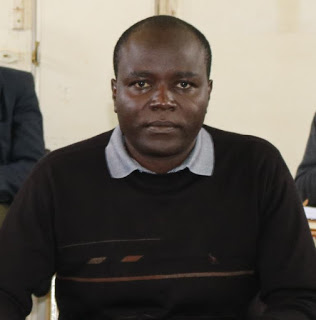
Catholic Diocese of Homabay started partnership with CAFOD in 2016 and according to Rev. Fr.
Abraham Ayieko, Director Caritas Homabay, they have seven projects, out of which two are supported by CAFOD. These includes Integrated food security and the poultry projects which targets vulnerable women, most of who are widows and are living with HIV/AIDS virus.
“The two projects are designed for those living positively with the virus because such kind of people cannot engage in labour intensive activities such as agronomic practices or businesses for that matter. So for poultry, we help them to keep indigenous chicken that need very little care. The chickens which are mainly for sale are kept in some small compounds designed for them technically,” Fr. Abraham explained adding that for management, the women are divided in groups within which they also draw support from each other.
The integrated food security project on the other hand helps these individuals to access the kind of nutrition that can increase their immunity thereby helping them to lead normal life devoid of chronic infections that are characterised with low immunity.
“Apart from these two projects, I can confidentially say that CAFOD is doing a lot more. Other than the two projects, the agency has been our partner in the growth of our structures and systems. CAFOD Coordinated and facilitated our capacity humanitarian development where our staff went through a process of learning about the gaps that we have in terms of competencies and every part of our project managements,” Fr. Abraham said adding that in CAFOD they have found a partner that wants them to grow.
∽End∽
By Pamela Adinda, AMECEA Online News
